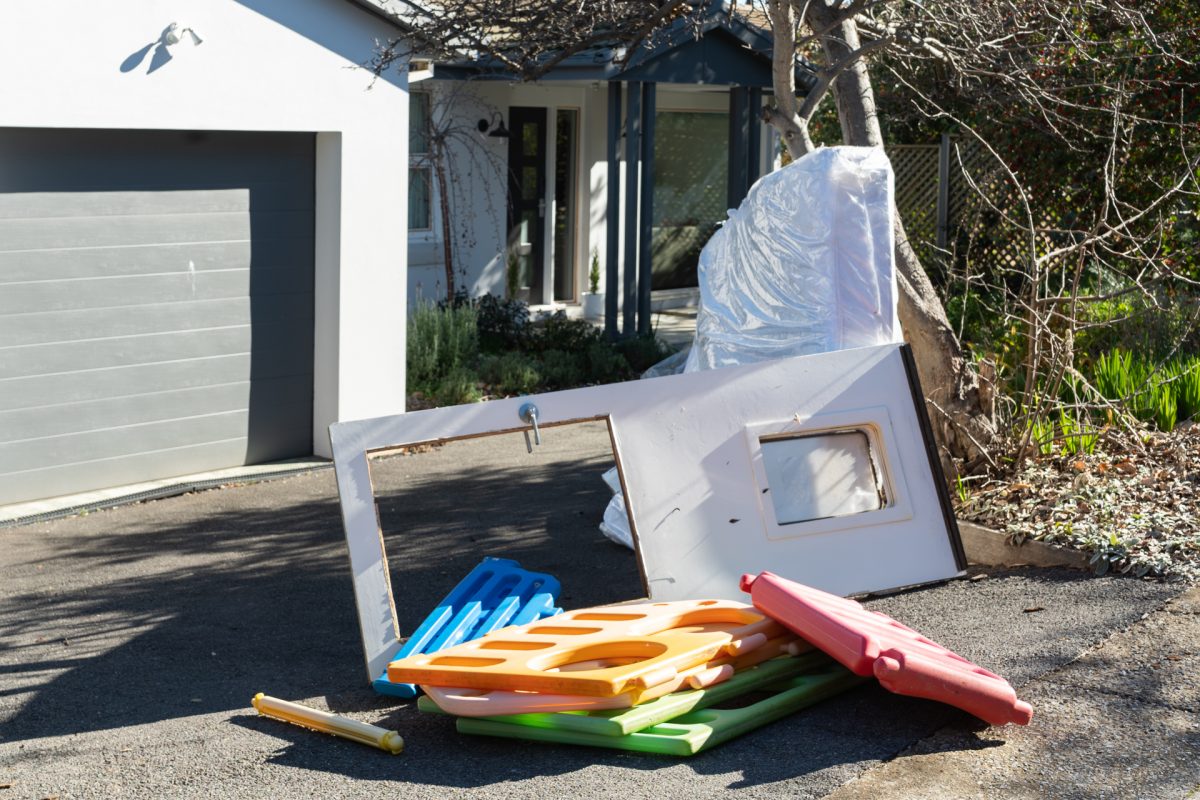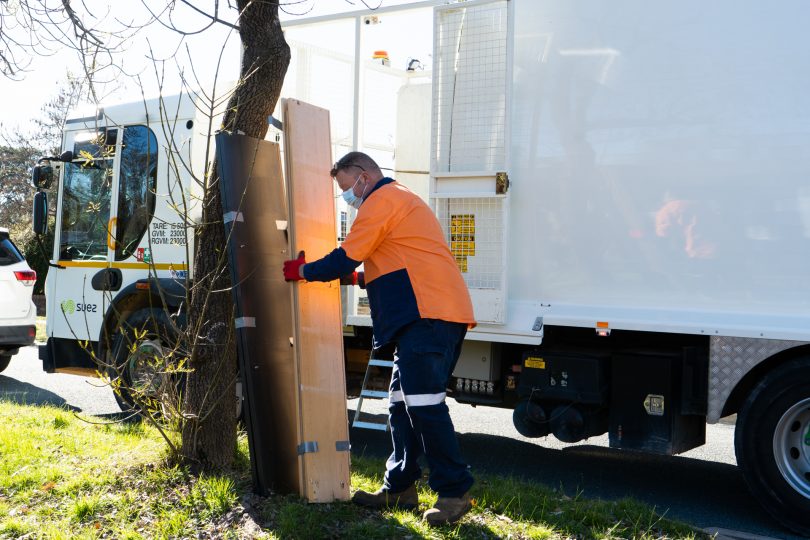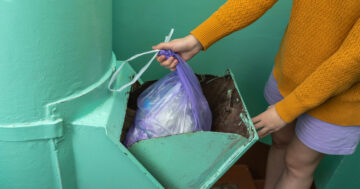
Canberrans get one free bulky waste collection a year and in multi-unit dwellings the date is arranged by strata. Photo: Dominic Giannini.
In Canberra, problems with inappropriate disposal of bulky waste can cost owners corporations tens of thousands of dollars a year, and one expert says more noise from residents and owners can help.
Vantage Strata branch manager Daniel Leskovec says the problems are particularly pervasive in strata complexes.
He has seen on many occasions how one item left improperly in common areas, a nature strip or central waste areas, can quickly snowball into a major problem.
“There’s a constant battle with the dumping of bulky waste items in strata complexes. New tenants and owners replace old ones and with people moving throughout the year, there’s always rubbish to deal with,” Daniel says.
“Many of the people who live in these complexes don’t have the means to take their bulky waste down to the resource management centre in Mitchell, so a lot of the time it ends up in common areas or the central bin area for body corporate to deal with.”
Transport Canberra and City Services has a bulky waste service designed to make it easier for Canberrans to dispose of unwanted household goods, saving time and money, enabling better resource recovery, reducing illegal dumping and keeping the city clean.
Following the launch of the original program, Daniel sat in on a targeted focus group of industry leaders to get the owners corporation perspective on how it was working in multi-unit developments, to continue or improve the process.
It resulted in a simpler process, including excusing residents living in apartments from having to list each item on their application form.
Residents of multi-dwelling properties have bi-annual collections organised by their strata companies and are allocated a specific cubic metre allowance of waste. Restrictions are made on the types of household items that can be disposed and mattresses attract additional fees.
The waste is then collected on the same given date in two passes – one for e-waste, metals, white goods and furniture suitable for recycling and one for mattresses and other materials destined for landfill.
It seems straightforward, but Daniel says it attracts no end of problems, with strata managers having to arrange extra pick-ups for everything from barbecues and furniture to car parts and mattresses.
“With the arranged collections, the issue we see most often is people exceeding their cubic metre allowance or residents trying to dispose of unauthorised items. Those extra or unauthorised items are then left to body corporate to deal with,” he says.
“Other times, you get people disposing of their items outside of the arranged dates. And if there’s one item dumped, generally that attracts more and it can snowball quite quickly.”

There are restrictions as to what can be disposed of in bulky waste pick-ups, and unauthorised items are left behind. Photo: Dominic Giannini.
Following an increase in the dumping of household waste on nature strips and other areas of public unleased land, the ACT Government’s Licensing and Compliance officers are currently undertaking compliance activities to curb the trend.
Illegal dumping of this kind can attract penalty infringement notices of up to $7500 for breach of the Litter Act. But Daniel says this is a drop in the ocean compared to the cost for body corporates to dispose of the bulky waste left behind on an annual basis.
“Once you add up the clean-up costs and all the administration that goes into it, it would easily cost body corps many thousands of dollars, perhaps tens of thousands that could be spent on maintenance and upgrades.”
Daniel says it often boils down to apathy.
“In most strata complexes you’ll find multiple signs prohibiting people from dumping their rubbish, outlining the ACT Government guidelines for proper disposal of waste and detailing where you can go to dump rubbish. But strata managers could post a whole forest’s worth of signs, and it won’t deter the behaviour,” he says.
“We have found this can be curbed in places where there is surveillance. But this only confirms that it’s rooted in systemic behaviour that needs to be addressed. It’s a case of people shifting the problem on for someone else – in this instance the body corp – to deal with.
“The goal of strata managers is to minimise the cost of building maintenance for owners corporations, and there’s a lot of room for this to be vastly improved when it comes to bulky waste. Educating en masse is difficult, but the more people who get involved, the more noise they make, the higher the possibility of achieving an outcome.
“If I go to the ACT Government and say ‘I represent 375 owners who have a problem’ I’m just one voice. But if 375 owners say ‘We have a problem’ – well, the squeaky wheel gets the grease.”
For more information send an email to tccs.nowastemuds@act.gov.au or contact Access Canberra on 13 22 81.

















